It’s a big world out there. The internet has transformed the way we share our daily lives, and for younger generations, the internet is a huge part of their social, recreational, and educational development.
With the rise in smartphone ownership among people under the age of 16, more children than ever before can access the internet. Statistics show that around 45% of children in the US own a smartphone between the ages of 10 – 12, with this number growing significantly in teenagers.
But keeping youngsters safe on the internet is a challenging task. Every parent knows that there is content on the web which isn’t suitable for their children, and many parents wonder how they can keep their kids safe online.
Tools such as Google’s safe search only work to a certain degree, and even the restrictions enforced by your internet service providers can let unwanted material slip through. Most worryingly are sites that are seemingly safe for kids, such as YouTube, which may, in fact, contain sensitive content uploaded by users, or deal with themes you don’t want your children exposed to.
So, what can a concerned parent do to limit their children’s risk on the internet? The good news is there are plenty of ways you can give your kids access to the web and let them use internet-connected devices, in a safe way.
Blokt has collated the top tips to keep your kids safe online, from child-friendly browsers to having tough discussions about privacy and downloading issues. Find out how to protect your kids online here!
Child-Safe Search Engines
Search engines are the most used tool on the web. Almost everyone has used Google or Bing to do searches, and when they’re used properly, search engines are an indispensable tool.
However, they can return inappropriate search results. Most search engines offer the option to block potentially adult content that may involve pornographic material, scenes of violence, weapons, or extreme political and religious material.
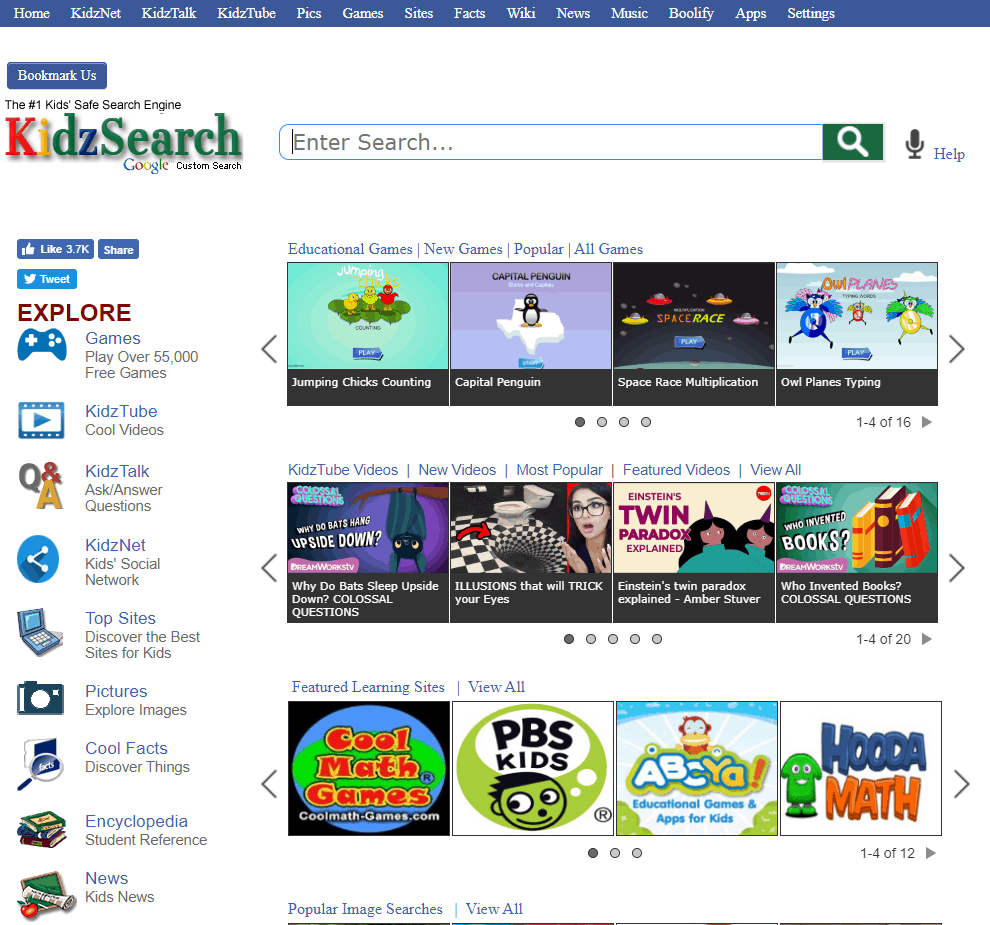
This is called ‘SafeSearch’ on Google, but even while browsing in this mode, there’s still the potential that children could be exposed to adult material. Instead, why not use a search engine tailored specifically for kids?
There are multiple options for parents who want to limit what their child sees through a search engine. KidzSearch, for example, which uses a custom version of Google’s search engine, is a highly popular safe search engine.
Your kids are free to look up anything they like, and KidzSearch ensures that no explicit material is returned in search results. Likewise, they offer educational material, their own video channel for child-friendly material, and even news for kids!
Other search engines which keep your kids safe are:
- Kiddle – Kiddle search for and ranks content based on its suitability for children. It shows sites which are specifically written for children towards the top of the search results, where they’re most likely to be clicked, and well-known sites which are written for an adult audience further down. None of the content it shows features anything explicit or not friendly for children.
- Kidtopia – Both a search engine and an educational resource, Kidtopia is aimed mainly towards younger children. With Google custom search function and a wealth of resources tailored for kids, Kidtopia makes it impossible for children to search for unsuitable content.
Child-safe browsers
Of course, child-safe search engines can only protect your children online to a certain degree. There’s always the chance that when using a normal web browser, your child will simply navigate out of the child-safe space and begin using sites you have little control over.
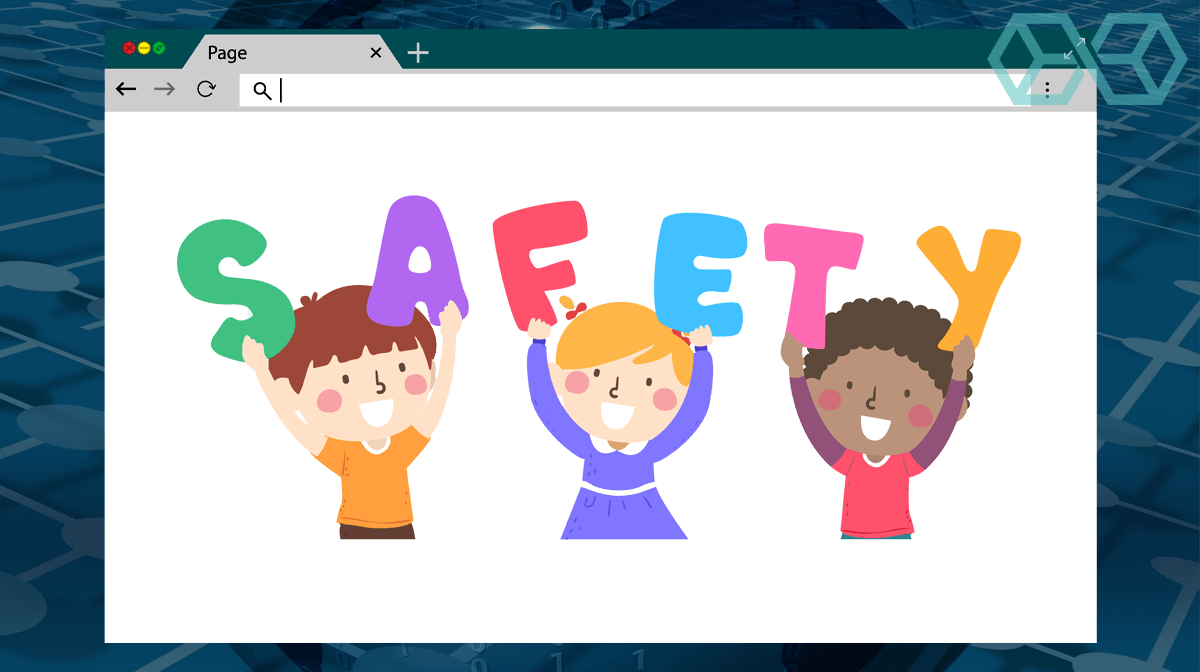
There’s a solution to this too. There are several child-safe browsers under development, which are entire stand-alone applications like Google Chrome or Internet Explorer, which create a safe internet experience for children.
Chrome offers this to a degree through their supervised accounts, which only allows connection to sites parents have pre-approved, through the use of a child-lock. Parents can also get an extra layer of protection by using the free Blocksi extension. Bloksi runs on top of Chrome to identify and block sensitive material instantly. This is a fairly robust method of making sure kids can’t access known explicit sites.
Browsers which are specifically tailored for children include:
- ZAC Browser – This browser is tailored towards autistic children, so it removes a lot of the functionality which traditional web-browsers feature – making it less easy to break or modify settings. Parents will also find that this browser is perfect for younger children who could accidentally navigate to potentially dangerous sites on a normal browser.
- Kido’z Browser – This is a paid browser, but offers one of the safest browsing experiences for kids. With a protected login, parents have full control over this standalone application, letting kids browse the net in safety.
Discuss the meaning of ‘personal’ data with your child
Every parent has heard horror stories of their children’s personal data being shared online, such as images, sensitive information, and aspects of their private lives.
Perhaps as a parent, you’ve even been on the receiving end of this situation, where an upset child has returned home from school after gossip has spread about something they’ve said or done online. As adults, we know this will pass, but for children, such situations can be incredibly stressful and affect their social lives and education.
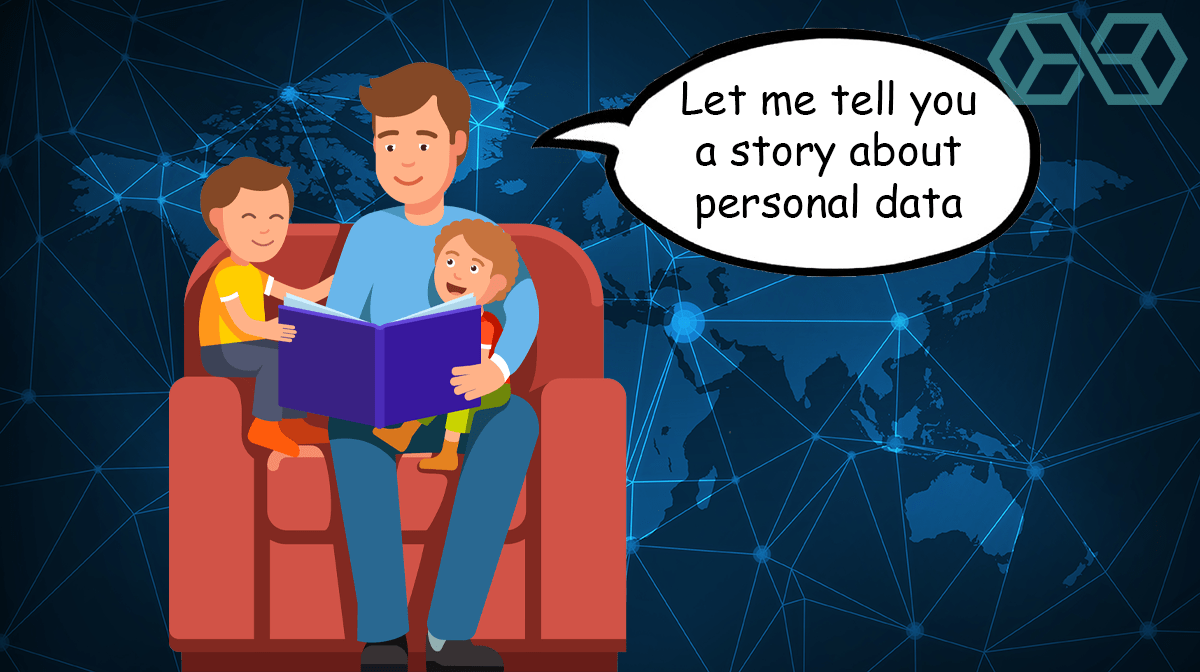
That’s why it’s important to set clear boundaries with your children about what they should and shouldn’t post online. If it’s an aspect of their personal lives, they wouldn’t want everyone knowing, then it shouldn’t be posted anywhere online – not even in a private message. Once something has been shared on the internet, it’s best to assume it’s there forever.
Instead, let your kids know that if they need to share something personal, that they can confide in you as both a parent and a friend. That way, personal issues stay within your family unit and don’t make their way online.
This also extends to keeping data such as phone numbers, addresses, age, and which school they attend out of the public realm. Unfortunately, such information could be picked up by dishonest individuals and used to collect information on your children’s personal life.
Is your child talking to strangers online with caution?
With the prevalence of online games, social apps, and media apps like Instagram, it’s easier than ever to meet ‘strangers’ online, who may not be who they seem. But the old adage “Don’t talk to strangers” is much more difficult online than it is in real life.
The web can be accessed through a huge range of devices, such as game consoles, where voice chat is common. Most players or people your child will be interacting with online will be legitimate individuals and most likely other children, but you can’t be sure. As our internet is increasingly social, it’s difficult to limit who they are interacting with online.

Instead, it’s probably easier to have constructive conversations with your child about the dangers of chatting with strangers online. Discuss with your child the importance of limiting the content of their conversations, as we’ve described above. If their social or recreation experience depends on it, inform them how they can stay safe, such as not sharing personal information, their whereabouts, or even their real name.
Instead, if your child is taking part in an online community or video games, encourage them to keep the topic of conversation to remain on the game itself, and ensure they use an alias to protect their real identity.
Set limits on internet usage and screen time
This point crosses over into the general health and wellbeing of your child as well as keeping them safe online. In the 21st century, so much of children’s life is spent online that they may get too emotionally invested in their online life, and neglect their other pastimes.
This can have serious negative consequences on their social lives and mental health. Children who spend more than 7 hours a day on screens are twice as likely to be diagnosed with depression or anxiety. While this may sound like an excessive amount of time, 20% of children aged 14 to 17 spend this long or more online per day in the USA alone.
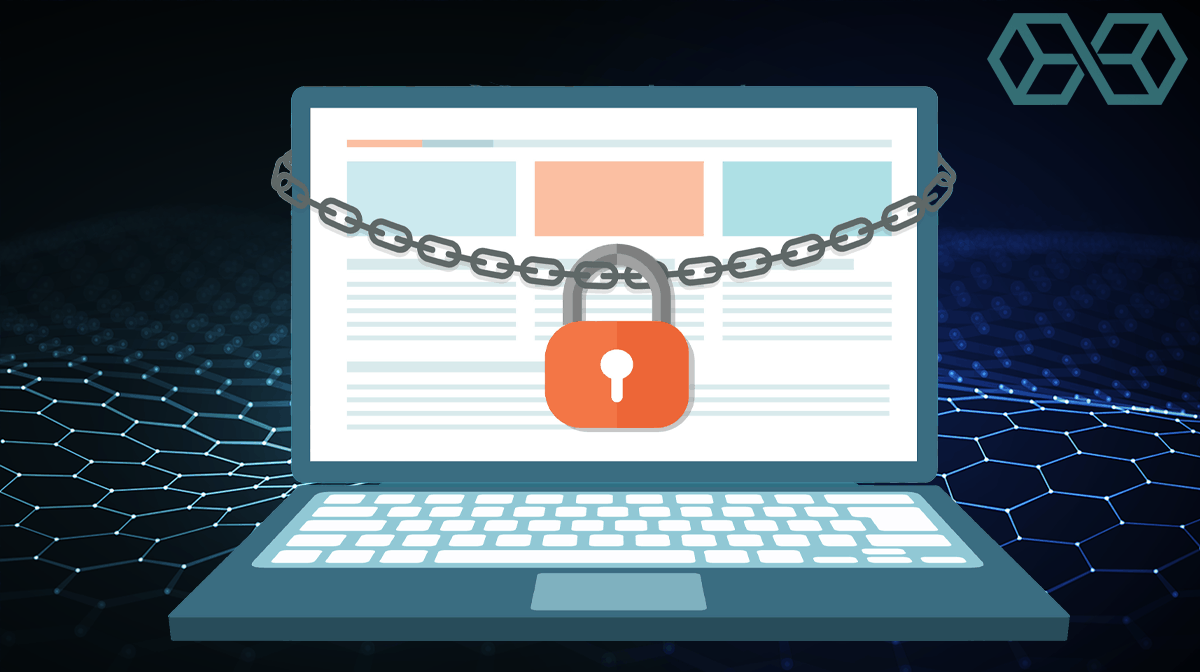
There are plenty of solutions that can be downloaded to limit your children’s time online. It’s especially easy to download these apps for mobile devices, such as smartphones and tablets. For example, OurPact lets parents moderate their children’s device usage.
Both a parental control app and locator, OurPact make it easy to limit your children’s screen time. Parents can use the app to set times that mirror their children’s routine, for instance, to lock their phones an hour before bed until the morning, or limit screen time to a set amount of hours per day. OurPact also allows certain apps to be blocked completely, such as the Facebook app, until you grant permission.
This one won’t win you any ‘cool’ points, but it’s one of the easiest ways to protect and monitor what your child is posting online. There are multiple accounts your child might have, for social media such as Facebook, Twitter, Snapchat, or Instagram; and for entertainment sites like YouTube, TikToc, and Twitch.
You may already have a personal account for some of these websites. If you don’t, most are easy to create and only require an email to signup. Once you’re ready, you can find your kid’s profile and ‘follow them’ as a friend.

It’s important to have a conversation about this first. Let your child know you’re not there to spy on them, and you’re just making sure they’re not getting into trouble, viewing sensitive media, or sharing personal details online.
Usually, by following your child’s profiles, you can see what content they are posting, sharing, and liking; or other users who they may be following and communicating with. Checking in just once a week is a simple but effective way of maintaining a presence in your child’s online life.
Look for signs of cyberbullying
Bullying at school is difficult enough to spot, but cyberbullying can be a whole new challenge as a parent. The signs of cyberbullying are similar to traditional bullying, your child may be withdrawn, acting out of character, or seeking isolation. Cyberbullying is increasing, with 9% of children saying they had been bullied through messaging apps like Facebook Messenger or Whatsapp.
The issue with cyber-bullying is that it doesn’t end at home. Now that children can be connected 24/7, there is a real potential to be the victim of bullying even in the safety of their homes. There are two major types of cyber-bullying which you should be aware of as a parent.
The first is ‘trolling.’ This broadly includes strangers harassing or chastising your child online for things such as comment they have made, a picture they have uploaded, or a video. Online trolls may be deliberately malicious and say particularly hurtful things to your child, but the important distinction is that it’s unlikely that these trolls know your child in real life.

If you can get your child to open up to you about online trolling, you should impress upon them that these trolls should be ignored and that their behavior isn’t worth rising to or engaging with. Most online trolls will quickly get bored of one target and move to another. As a parent, you could suggest your child has time away from internet-connected devices until the situation has calmed down.
The second form of cyberbullying is from those within your children’s circle, either at school or locally, who see and interact with your child in real life. Situations have been known to occur when a group of children systematically bully another child, and this abuse can move online – leaving your child little room to escape either at home or school.
These cases should be dealt with much the same as traditional bullying incidents. Identify the culprits, save copies of the messages, and take them to the school or local authorities. There is a long history of cyber-bullies being held legally accountable for their actions, and as a parent, you should feel within your power to pursue this action.
Be aware of video sharing services
If you’re the parent of a teenager, you’ve more than likely heard of TikToc, a highly popular video sharing service. There are many sites like this, but they all center around user-generated content such as short videos and clips.
Normally, these video sharing services are a bit of harmless fun. Many users can apply filters to themselves, which modifies the way they look or use voice changers to make funny short singing and dancing clips. However, there’s a sinister side to these sites too.

Online predators may be using these sites to connect with teenagers online, and may even be posing as a teenager to make connections. Whilst these communities have strict guidelines and usually take a hard stance on adult content or sexual harassment, you should also ensure your children are not sharing suggestive content on video-sharing apps, as this could attract unwanted attention.
Similarly, it’s important to make sure your child isn’t sharing content, which could be potentially embarrassing or prompt bullying from their peers. All children do things that are embarrassing when looking back as an adult, but as we’ve discussed, content on the internet can be widely shared and maybe around forever. Make sure whatever videos your children are sharing contain content they wouldn’t be embarrassed to see posted elsewhere at a later date.
Profanity and language filters
At some point in life, your children will hear a profanity. But there’s no need to expose them to profane language online, and there are steps you can take as a parent to limit the occurrence of curse words appearing in your child’s online life.
Parents can download dedicated services, such as WebPurify, which automatically blocks profane words with other random characters. WebPurify operates on top of normal web browsers, so even if your child has free reign online, you can still limit the language they are exposed to.
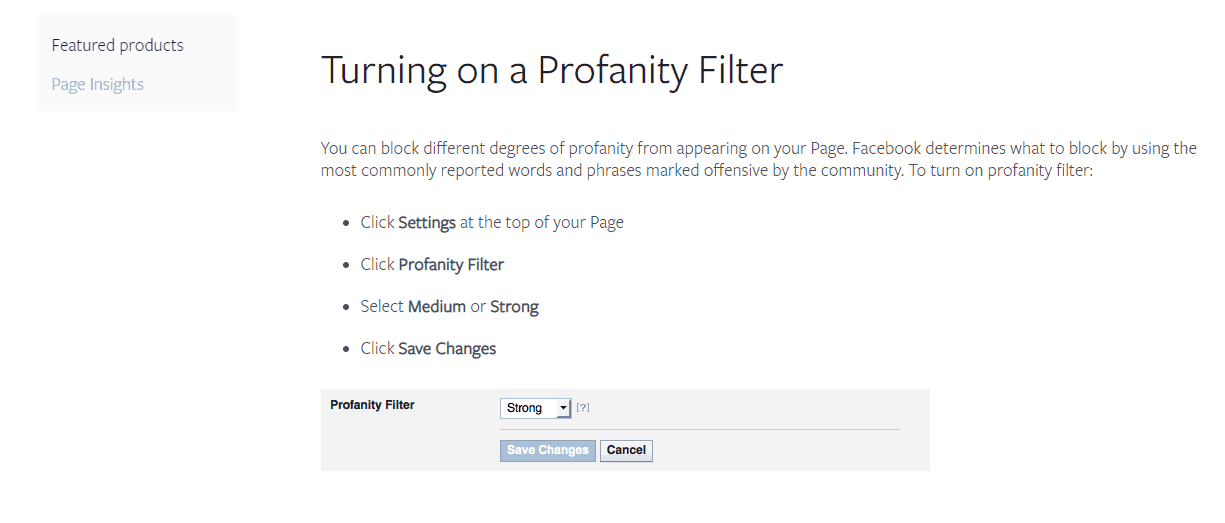
Social sites such as Facebook allow parents to moderate the language their children are exposed to through their page moderation feature. In this feature, any post containing a blocked word is not shown.
In this little known feature, parents can either choose to strongly moderate profanity, which cuts out all known curse words, or they can specify which words are blocked, such as ‘fighting’ or ‘violence,’ which may not be caught by profanity filters. This brings us onto our next tip, which helps you control whether your child is exposed to violent content.
Limit access to violent content
Unfortunately, there’s a lot of violent content online. This could range from scenes of fighting to animal abuse, and it’s bound to shock and affect your child. Probably the highest risk sites which may expose your child to violence are user-generated content sites, such as YouTube.
Although YouTube has strict policies and works to remove violent content, it’s still sometimes online for a few minutes or hours before it’s taken down. Luckily, YouTube recognizes this issue, and as a result, they’ve launched YouTube Kids.
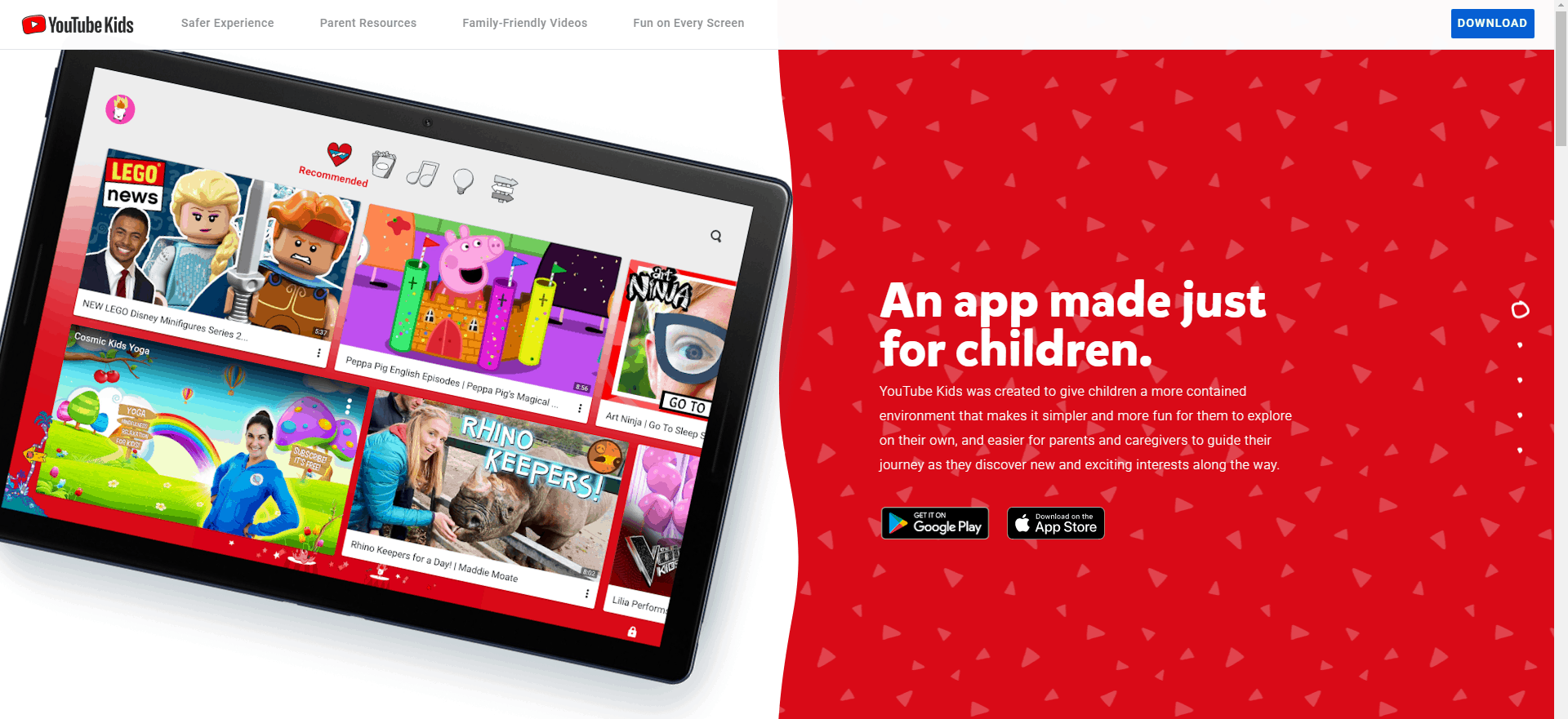
YouTube Kids is a downloadable app on Android and iOS devices, which provides a safer experience for children. YouTube’s team actively identifies and removes content which is unsuitable for children, so parents have peace of mind when their child is exploring new videos.
Ensure access to in-app payments is restricted
This next step may not directly concern your child’s safety online, but it could save parents a serious headache and enforce good practices in the future.
If you let your children use your smartphone to play games, there’s a chance that they could make in-app purchases that are billed directly to your stored payment method. To prevent this, make sure any app you let your children play on your device doesn’t contain in-game items for real money.
You may even want to consider buying your children their own child-friendly device, like the Amazon Fire 7 for Kids, which is a 7” tablet perfect for playing games and using apps. The device comes preloaded with kid-friendly games and full parental controls to prevent unwanted expenses!
Talk about torrenting!
Unless you’ve never watched a movie on DVD or at the cinema, you’ve likely seen the above advert against piracy and torrenting. Torrenting is a way of distributing files online peer-to-peer. Many torrenting sites exist where users upload films, music, photographs, games, and more. These can be tempting for children (& adults), who may want to download their favorite artist’s latest album or play their favorite games for free.
The problem is, torrenting is technically illegal. Many of these files are provided without a license, which would normally be granted upon purchasing the content legitimately. Although torrenting is widespread and commonplace online, it’s still against the law in most countries. Thus the only way to download them safely is to use a VPN.
Secondly, many torrenting sites could expose your children’s devices to viruses that steal their data. This is a problem since even adults can easily be tricked into downloading corrupt files or downloading form phishing sites that look like famous torrent sites. This often happens with pirate bay for example.
At Blokt we do not frown against torrenting, but it is best your kids don’t do it because it can lead to problems with your ISP if they are not doing it through a VPN.
If you want to do it you should be using a vpn like NordVpn, Expressvpn or another vpn service that supports torrenting.
References
- Associations between screen time and lower psychological well-being among children and adolescents
- Hate Speech in Social Media
- Stealing From the Rich to Entertain the Poor?: A Survey of Literature on the Ethics of Digital Piracy

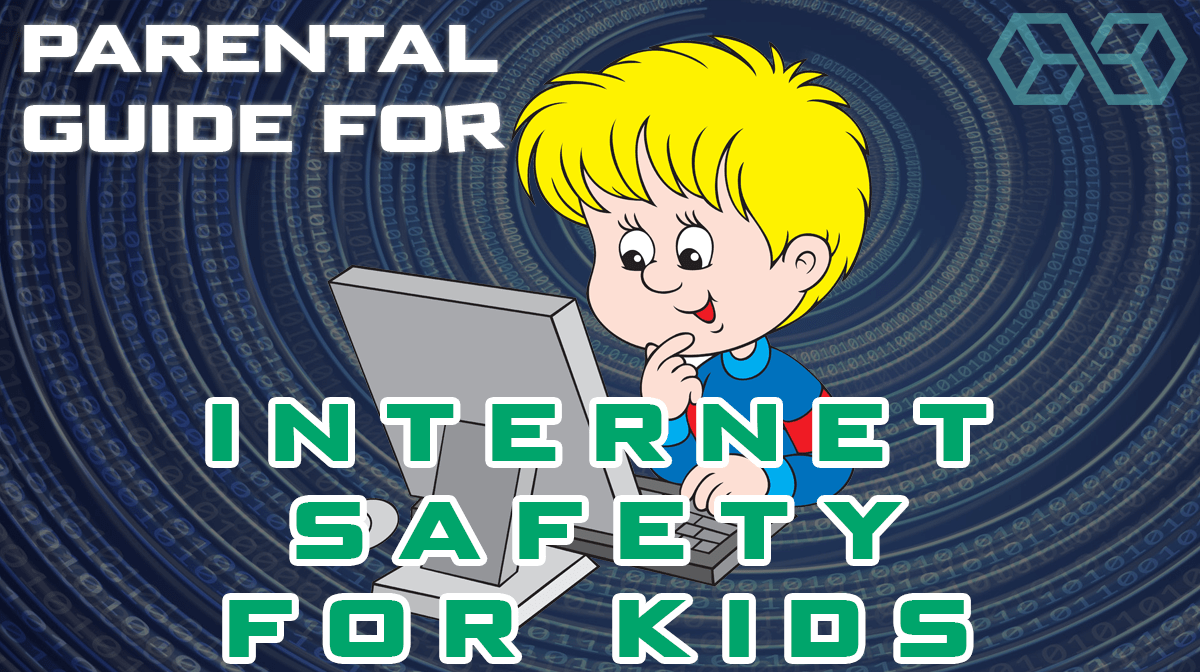
![A Beginner’s Guide to Monero – What Is XMR? [Updated 2023]](https://cd.blokt.com/wp-content/uploads/2019/04/Beginners-guide-to-Monero-2-218x150.png)

![Best 5 Bitcoin Sports Betting Sites [2023] (Analyzed & Approved) Best Bitcoin Betting Sites](https://cd.blokt.com/wp-content/uploads/2020/05/best-bitcoin-betting-sites-218x150.png)


Thanks for this very informative article. I still need to review more of your suggestions and information. Can I share a link to this article/guide for parents on my website ? I am a school social worker and feel many more parents can benefit. Please confirm this is okay! THank you!
Hi Frannie,
Thanks for your comment. You’re more than welcome to share this guide on your website.
All the best.